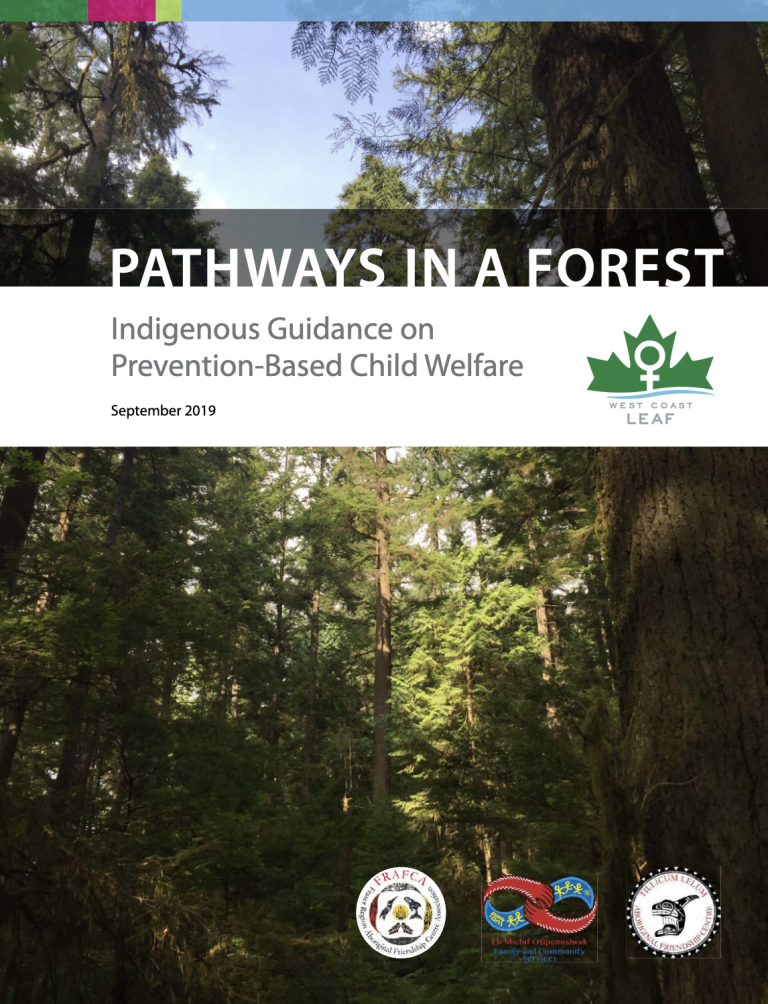Search the Baseline Project
To search the recommendations database, please visit the database main page.
To search the recommendations database, please visit the database main page.

“Pathways in a Forest: Indigenous guidance on prevention-based child welfare” is a law reform report developed collaboratively by West Coast LEAF and the families, Elders and staff at Tillicum Lelum Aboriginal Friendship Centre, Lii Michif Otipemisiwak and the Fraser Region Aboriginal Friendship Centre Association. The report highlights efforts by Indigenous families, communities and Nations to revitalize Indigenous approaches to child welfare, develop comprehensive community-based supports and fight for self-determination.